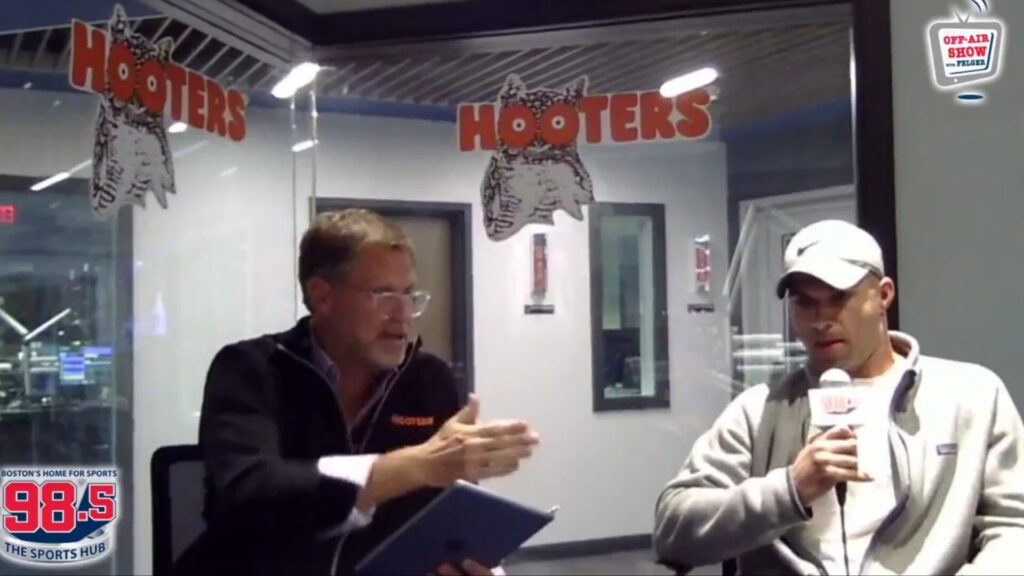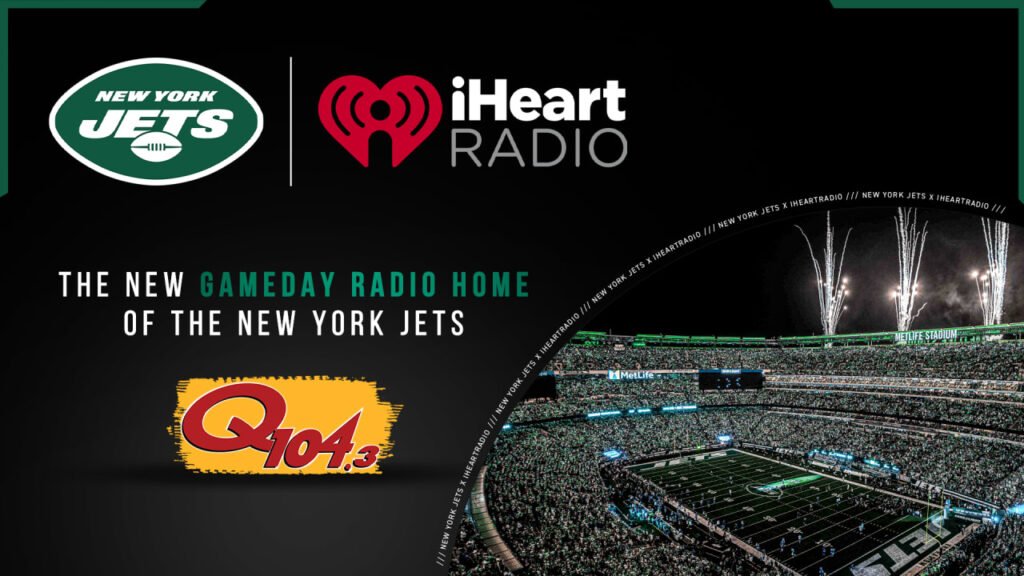I’ve been thinking about this column all week because it’s a topic I’m passionate about and curious to hear the responses to. For starters, let me pose a few questions to you. Does quality journalism still matter? Is it worth paying for? Do advertisers see enough return on their investments with print outlets through associations with influential writers, publications and branded content? Are consumers hungry to read the full details of a story or are they satisfied with the cliff notes version and absorbing messages that fit inside of 140-280 characters?
The world we’re in is saturated with content. Attention spans are rapidly shrinking. Social media is both to blame and bless for that. The positive is that we’re exposed to more content than ever before. This means more opportunity to reach people and grow businesses. The challenge of course is standing out.
People listen, read and watch less of one thing now, opting for variety during the time they have available. The issue with that is that it often leads to being less informed. I know many like to declare print being dead. I’m sorry I’m not one of them. Adults still enjoy reading. I see nearly three million people do it on this website alone and we’re small potatoes compared to mainstream brands. Clearly people like to learn.
I raise this topic because last week, Peter King announced his retirement although he left open the door for side projects. After forty plus years of writing the gold standard of NFL columns, King revealed he wanted to slow down and invest his time in other areas of life. Among his considerations for the future after taking a breather are teaching.
In a podcast interview with Richard Deitsch, King said “We may love this column but I doubt that it made enough money for NBC to pay what they were paying me. I don’t think words are very profitable anymore. It’s a sad thing but it’s what’s happened to our business.”
Later in the conversation, King discussed the difficulty he might face if speaking to students about whether or not to pursue working in the media industry. He acknowledged that the business is bad right now. However, he pointed out that if you can write and read, and be an intelligent thinking contributing member of society, there are a lot of jobs you can do beyond being a writer for a paper covering the NFL. You can teach English, work in PR or for a team or league website. But journalism is different now, and though it’s not impossible to do, having flexibility is important.
I agreed with most of King’s remarks and thought about the two different ways people might respond to them.
If you’re in agreement with Peter, you’ll point to the reduction in industry jobs, the changes in salaries, the lack of trust in media outlets, the economic uncertainty facing traditional operators, the shrinking ability to uncover truth, and the data that frequently supports video being hot, and print not so much.
Those who disagree will list the New York Times and The Athletic as examples of print brands that still matter. They’ll also mention the surge in newsletters, the arrival of new online outlets, and the daily communication between millions of people each day on social media, much of it revolving around conversations created or supported by text.
Where I sit is somewhere in between.
First, the notion that it’s harder now than before is one I’ll challenge. When I entered the business, I had to mail letters, send cassette tapes, and wait months for a response. There was no internet or opportunity to create a podcast, Substack, website or video to build an audience. I had to be selected by someone to have a chance to work. There were thousands like me who wanted a way in and were at the mercy of decision makers preferring my resume over someone else’s. I did exactly what King said on the podcast when he mentioned having to do other jobs to support yourself while pursing a dream.

Where I agree with King is when he mentioned words not being as profitable anymore. Are print reporters and columnists going to make what they once did? Probably not. There will always be exceptions just as there are in television and radio, but if you think you’re going to do one specific job and making a financial killing on it, prepare to be disappointed. Today, you better be able to wear different hats and create a lot of content in multiple places. Earning a lot for doing a little is a way of the past.
The one area where I’ll differ is when it comes to advertising. I believe there’s untapped value for brands in print. Recall with the written word remains strong. There’s also less advertising clutter in written stories than audio and video programming blocks. Advertisers may not seek out traditional print advertising anymore but branded content, newsletter associations, and social media placements remain valued.
What I admire greatly about King is that he evolved over the years. His written work on SI was must-read but that didn’t stop him from leaping into the online space and launching MMQB. The arrival of that microsite was done at the right point in time, and when SI began to change, King didn’t hang on, choosing to make the bold move and jump to NBC. Upon his arrival, he started contributing on television, podcasts, and expanding his profile on social media.
What you should take away from Peter is that you’ve got to constantly examine the business, and understand when it’s time to pivot, even if it means leaving your comfort zone. You also have to recognize that things are going to change and your job description will likely be one of them. If you stay married to what you once did, you’ll be in a tough spot. If you roll with the punches and embrace what’s new, you’ll survive and thrive.
You also have to understand that you’re going to be tied further to what you produce. Does your presence and performance grow advertising revenue? Are you speaking on behalf of brands and helping them move product? Do you grow subscriptions or readership to levels that make it easy for a company to invest significantly in you? Talent is subjective. Results aren’t. Those who create quality while boosting the bottom line will remain in demand.
Remember this in a few years when artificial intelligence becomes a bigger part of content creation and discovery. Those who adapt to it and work with it will be just fine. Those who reject it will be searching for new career paths. Not that there’s anything wrong with that. There’s better stability in other industries. But there’s nothing like creating content around the world of sports and media. It just requires adaptability and being comfortable with being uncomfortable.
BSM Summit Update:
In ten days we unite the sports media business in New York City for the 2024 BSM Summit. All of the sessions are now complete. I’m excited to add Natalie Marsh, General Manager of Lotus Communications in Las Vegas, Cody Welling, Station Manager of 97.1 The Fan in Columbus, and Stephanie Prince, Vice President and Market Manager of Good Karma Brands West Palm Beach to our schedule. The full agenda for both days is posted on BSMSummit.com.

In addition, I’m thrilled to share that we’ll have a few special appearances at the ESPN Radio After Party on Wednesday March 13th. Joining us on-site will be Evan Cohen, Chris Canty and Michelle Smallmon of UnSportsmanLike, Freddie Coleman and Harry Douglas of Freddie & Harry, and Chris Carlin from Carlin vs. Joe.
Thumbs Up:
Chris Mortensen: Rarely does the sports media industry collectively agree on anything but you won’t find much disagreement on Chris Mortensen. He was a special talent and human being. I was fortunate to see it firsthand as a producer at ESPN Radio. I then enjoyed many interactions with Mort as a program director lining up calls on the radio stations I ran. It didn’t matter what job you did or where you worked, Chris treated you well. His work was hall of fame worthy but it was the manner in which he interacted with people that truly made him a legend. Rest in peace, Mort. I’m sure the next wave of conversations with John Clayton are going to be amazing.

Mike Felger: It would’ve been easy to pile on and publicly root for a competitor to fail and fold. Instead, Felger took the high road, acknowledging that he’s rooting for WEEI to come out of bankruptcy in good shape. That’s what smart business people. Mike is comfortable in his own skin. He has the highest rated show in Boston and having a competitor to compete against as well as a potential landing spot when contracts come up is never a bad thing. Besides, why would anyone want to see friends and respected professionals lose an opportunity to work or listeners given less choice for sports talk entertainment? Nice job, Mike.

iHeartmedia: The company’s fourth quarter results were down year-to-year but they were above prior projections. iHeart also gained 16.6% growth in podcasting revenues during Q4, and just got stronger by luring Stephen A. Smith’s podcast away from Audacy. A pretty good week for Bob Pittman and his lieutenants.
Sportico: Jason Clinkscales is an easy guy to root for. He’s written quality content for Awful Announcing, is a sharp guy who enjoys the industry, and after a year full of personal tragedies, he deserved a break. That came last week when Sportico hired him as a reporter and editor on their breaking news team. Well done Sportico. Looking forward to reading the first piece.
National Association of Broadcasters: Creating buzz for conferences isn’t easy but the NAB’s recent announcement of having Daniel Anstandig of Futuri Media present a first-of-its-kind presentation at its April show alongside Ameca, an autonomously AI-powered humanoid robot has certainly increased conversation and intrigue. I’ll be in attendance for the event and am curious like many. I’m just hoping Joe Rogan isn’t right when he suggested this week that robots will jump out of an aircraft carrier with machine guns and do damage.

Thumbs Down:
Kroenke Sports and Entertainment: This isn’t a shot at the company. It’s more about losing a talented media executive. Matt Hutchings, the company’s former COO and EVP was a key part of developing Altitude Sports. Under his watch, the Nuggets and Avalanche won titles, and the company cemented its position in the local sports radio space.
The dispute with Comcast over airing Nuggets and Avs games is well documented, and Hutchings will get some of the blame for the teams not being broadcast on local TV but I tend to believe decisions of that magnitude land at ownership’s doorstep. Regardless, KSE is weaker today than yesterday due to losing Hutchings.
New York Jets: I get it. 98.7 ESPN New York moving away from the FM dial provides a concern for the franchise, and in other cities, football does perform well on classic rock stations. I just see the fit with Q104.3 as an odd one. If Aaron Rodgers returns and the Jets finally take off the way their fans hoped they would last year, it’s going to feel strange hearing their games locally on a channel that has little content time dedicated to the team beyond game days.


Jason Barrett is the Founder and CEO of Barrett Media. The company launched in September 2015 and has provided consulting services to America’s top audio and video brands, while simultaneously covering the media industry at BarrettMedia.com, becoming a daily destination for media professionals. Prior to Barrett Media, Jason built and programmed 95.7 The Game in San Francisco, and 101 ESPN in St. Louis. He was also the first sports programmer for SportsTalk 950 in Philadelphia, which later became 97.5 The Fanatic. Barrett also led 590 The Fan KFNS in St. Louis, and ESPN 1340/1390 in Poughkeepsie, NY, and worked on-air and behind the scenes at 101.5 WPDH, WTBQ 1110AM, and WPYX 106.5. He also spent two years at ESPN Radio in Bristol, CT producing ‘The Dan Patrick Show’ and ‘GameNight’. JB can be reached on Twitter @SportsRadioPD or by email at Jason@BarrettMedia.com.



